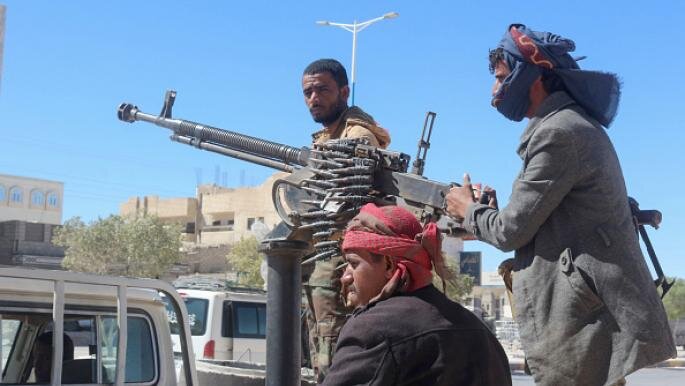
TEHRAN – Yemeni forces trained and backed by the United Arab Emirates have announced the end of their military operations after a month of severe fighting that resulted in the Sanaa-based forces targeting Abu Dhabi with missiles and drones.
The fighting in Yemen seems to be heading toward a de-escalation after a month of heavy fighting that rattled the entire region.
The UAE-backed Giants Brigades, which have been leading the fighting against the Sanaa-based government’s forces in Shabwa governorate and Marib, announced on Friday that they had begun withdrawing from a key area of the conflict and repositioning their fighters and equipment after achieving their goals.
“After the great success achieved by the southern Giants Brigades in Operation Southern Storm, it began transferring its brigades to the main headquarters,” the Brigades said in a statement. “The Brigades repositioned its forces in Shabwa governorate after liberating the districts of Bihan and Harib and securing them completely from the Houthi militias.”
The surprise announcement came against a backdrop of heightened tensions in the wake of missile-and-drone attacks against Abu Dhabi. Vital oil installations and an airport in Abu Dhabi came under attacks from Yemen for the UAE’s involvement in providing military support to the Brigades during their push to capture a number of strategic districts in Shabwa and Marib governorates.
The drama began in the last months of last year when the Brigades were moved from their base in areas along Yemen’s western coasts to Shabwa. A mid-November statement by the Saudi-led coalition said the redeployment was intended to support the Saudi-backed Yemeni government “in its battle on all fronts.”
They made some advances in Shabwa over the last few weeks and recently even moved toward Harib in Marib, the last stronghold of the Saudi-backed government in northern Yemen. After taking over Harib they seemed ready to advance into the city of Marib but they suddenly announced the withdrawal on Friday, a move that sparked speculations over what drove them to change their calculus.
An article published by Al-Masirah, a news network affiliated with Yemen’s Ansarallah movement, suggested that the Yemeni strikes against Abu Dhabi dissuaded the UAE from moving ahead with its plans in Yemen. “The Yemeni strikes are a painful strategy that will greatly reduce the UAE’s efforts to attract foreign investment, ‘as it greatly encourages foreign investments in the oil and gas sectors’, and thus negatively affects trade and tourism, which are the lifeblood of this state. The UAE is an oil country that ranks third in the world among the major oil-producing countries in the Organization of Petroleum Exporting Countries,” the article said.
It also said, “The Yemeni Armed Forces targeted the depths of Saudi Arabia and the UAE with ballistic missiles and drones hitting sensitive sites. This operation will be repeated unless the countries of aggression take their actual, real steps to stop the unjust aggressive war and lift the siege on Yemen ports and airports.”
The Yemeni ambassador to Iran, Ibrahim Al-Dailami, also echoed the same assessment. He told Almasirah that the UAE's escalation was met with a bold and courageous decision to target the UAE, and it turned out to be a soft side of the forces of aggression.
“The UAE cannot continue any confrontation, and today it resorts to deception, announcing withdrawals and repositioning its forces in Shabwah,” He added.
He noted, “We are ready to continue targeting all the countries involved in the aggression, including the UAE, and the courage of the leadership has been demonstrated.”
The ambassador continued, “Unless we see on the ground the departure of the forces, the treatment of the prisoners' issue, the payment of compensation and the lifting of the siege first and foremost, the coalition of aggression will suffer blows that they never expected.”
TAGS

No comments:
Post a Comment